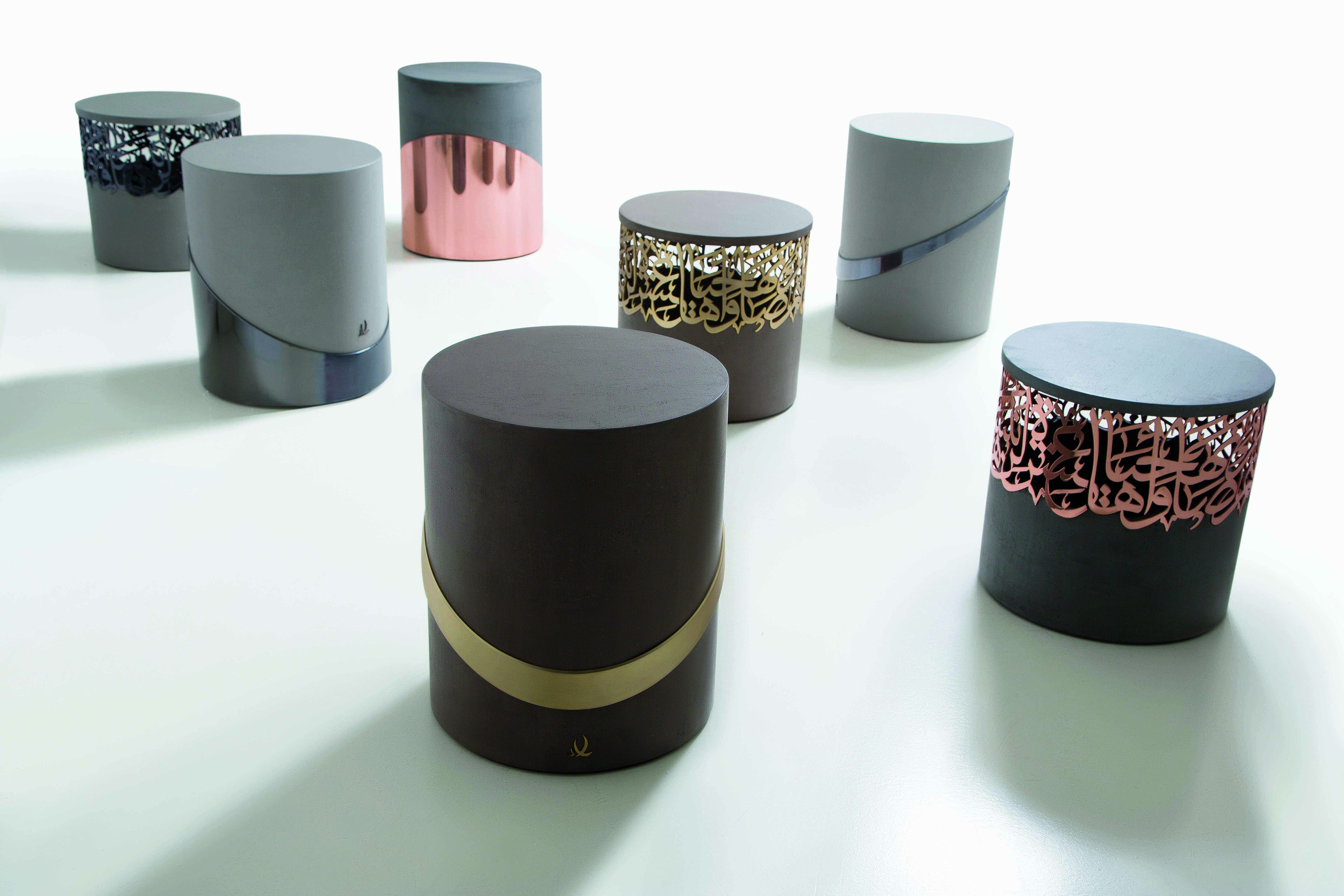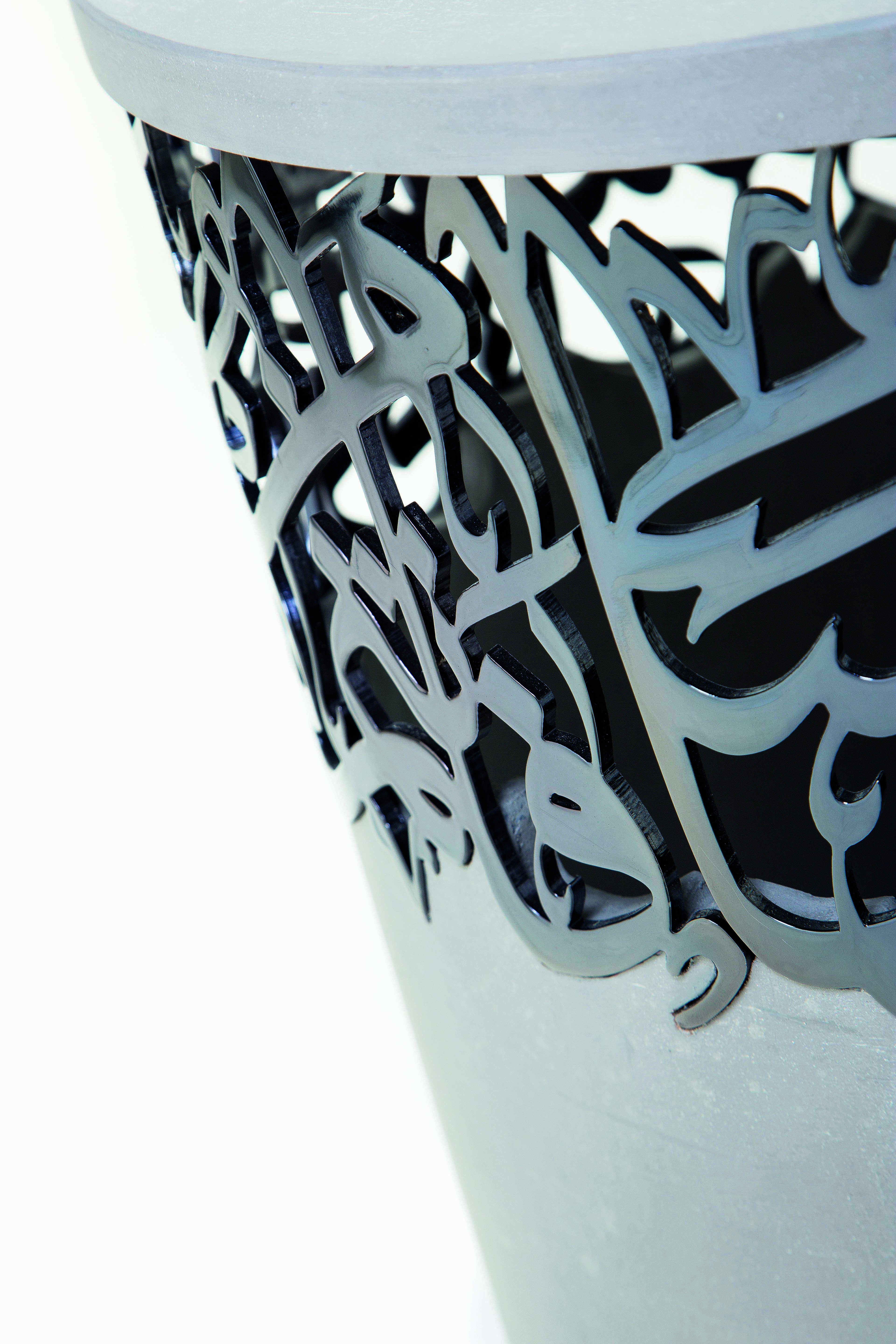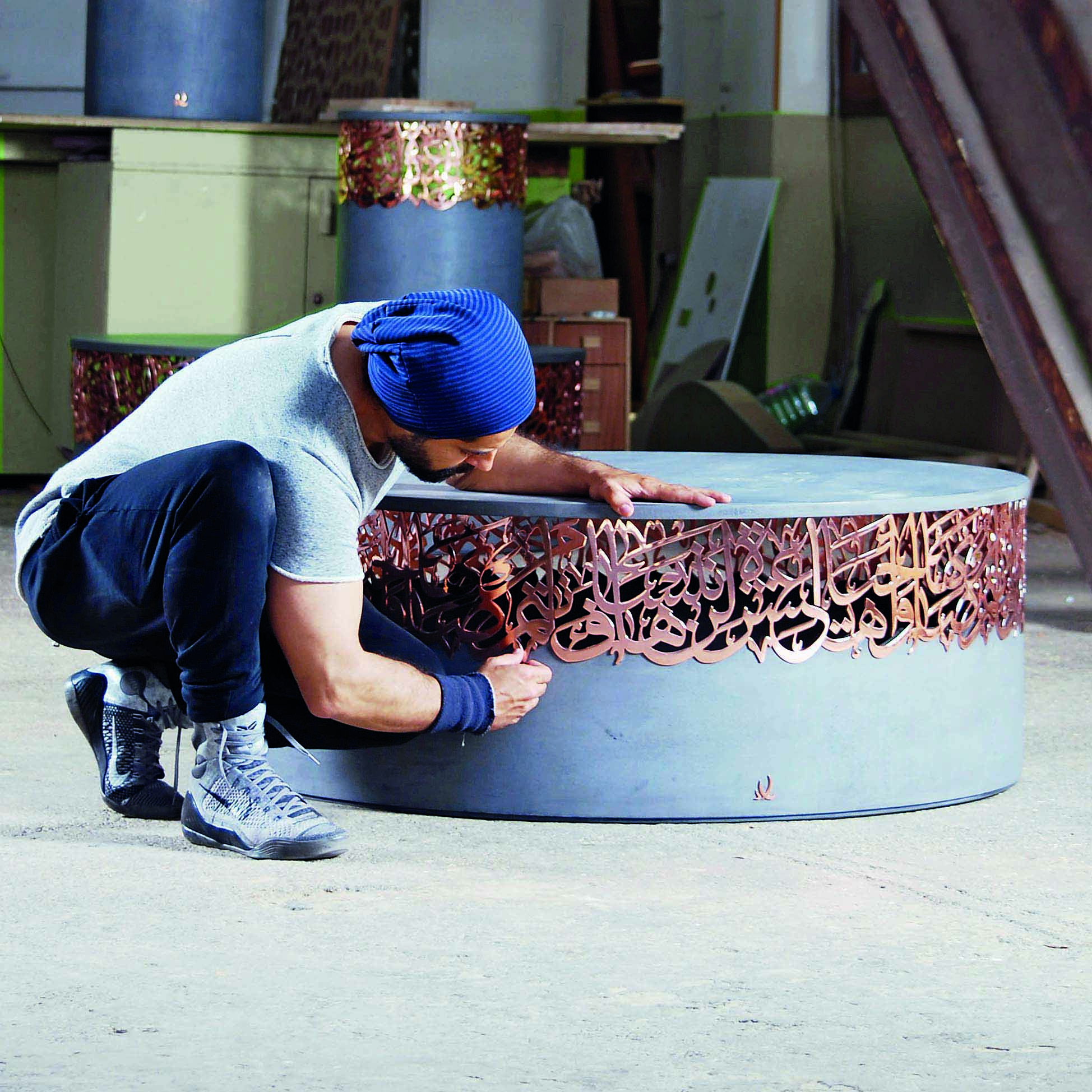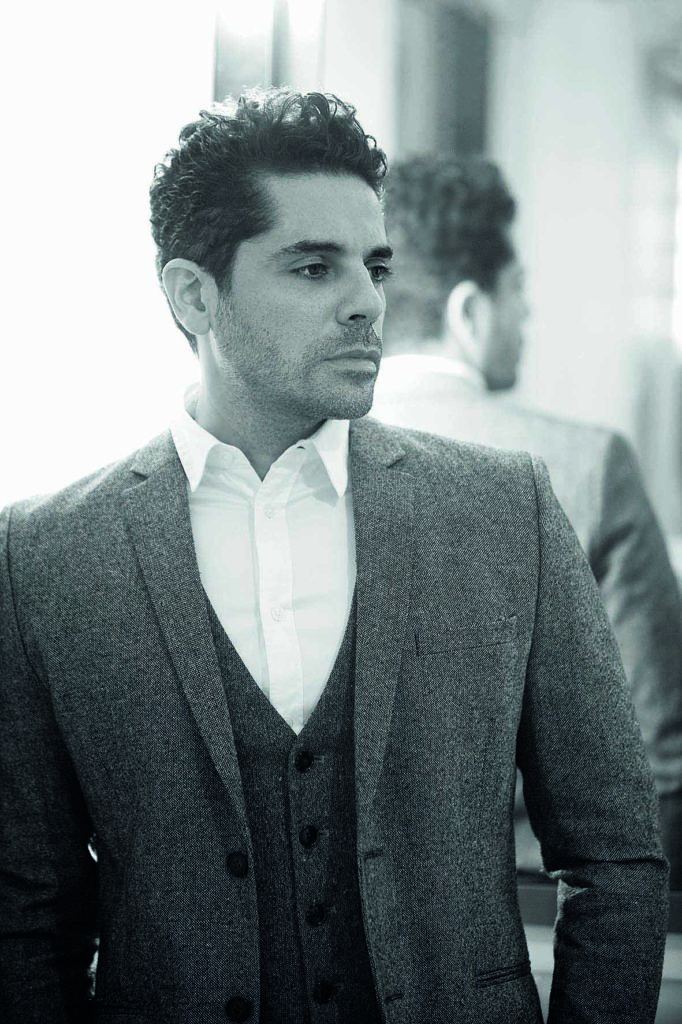Creativity is sometimes hard to define. As Iyad Naja gives insight into his life, it’s clear that his speech and mind go any direction that takes him. Naja’s artistic nature was nurtured from a young age, he has an interesting relationship with Lebanon having lived abroad intermittently at different stages of his life, but he expresses nothing but love for the country. He also expresses nothing but love for his grandmother who was everything to him – his guardian, artistic mentor and inspiration. After a stint in the advertising world, Naja now pursues his own artistic endeavors in a wide variety of design projects.
Born in Nigeria, Naja then moved back to Lebanon. He spent the first eight years of his life largely in the company of his grandmother – a beautiful, strong, self-taught woman, a teacher and a poet. “She was progressive and so focused on creativity that she didn’t even know how to cook,” Naja says. “This was unusual for a woman living at that time.” She also wrote and spoke Arabic beautifully, Naja remembers, “she told me I should always remember my Arabic roots and my heritage.”
At aged 8, Naja returned to Nigeria to live with his father. By the age of 12 his parents decided that the best thing for him would be to go to England for his education. Of his time at SABIS International, a boarding school in Bath, he remembers, “it was exactly like Harry Potter. Our school was in an old castle, there were endless green gardens and house teams called things like ‘the Hawks’ and ‘the Falcons.’”

Like many of us growing up Naja took everything for granted. All of his senses and experiences seemed infinite and his loved ones eternal. However as he matured he found that things faded, family gatherings became less frequent over time. The need to capture memory in a visual context, and inspiration from his grandmother led Naja to explore calligraphy as something that appeals to eye and is flattering to the soul. It takes an interesting journey from the page of hand-written calligraphy to a digital design program and then on to a blacksmith who forges it in metal. Finally Naja gives it color treatment and sometimes installs a light, just to give the impression of something distinctive and finely made.
Naja says that much of his influence is drawn from the rich well of Arab history, and his goal is to show this to the rest of the world by making it relevant in a modern context. His art reflects his surroundings, for example some of his calligraphy and his collection of stools are made from concrete and steel, inspired by the construction industry and the ever-changing face of a city. “You do not have to use beautiful materials to produce a beautiful object,” notes the artist, “there’s something about using metal that I find so rewarding. That this hard, rough substance can be melted down and turned into something beautiful and tough is amazing.”

He cites his real challenge as expressing the history of the Arab region, but in a modern context. “We invented algebra, astronomy, musical instruments and so many things,” he says. “The rest of the world, and even most Arabs, have no idea about this, and so I want to bring it to light.” He was commissioned to build a brass lift doors in a private residence in Lebanon. While in Milan at the Da Vinci museum shop he discovered a book on Abass ibn Firnas, a ninthcentury Arabian polymath who invented a flying machine hundreds of years before Da Vinci. Ibn Firnas’ notes resemble Da Vinci’s with geometric patters and mathematic equations. In fact in many of Da Vinci’s sketches the notes were written backwards, almost in a code, a direct result of his exposure to the work of Ibn Firnas who, as an Arabic speaker, wrote from right to left. Naja’s doors are a triumph, beautifully constructed pieces with the Arabic phrase.

“We have lived moments in life that are abundant with blessings” written across them when closed.
One might ask, seeing as Naja is so accomplished and had such an international upbringing, why he chose to live in Lebanon. “This is my HOME,” he responds, “this is a beautiful HOME for me, despite the chaos. You can either run away from it or embrace it. It’s not the place it’s how you relate to it.”
Instagram: @iyadnaja
Facebook: facebook.com/iyadnajaofficial
theurbanfusion.com
designboom.com/design/ dubai-design-week-iyad-najastools- ode-rose-10-21-2015/

































